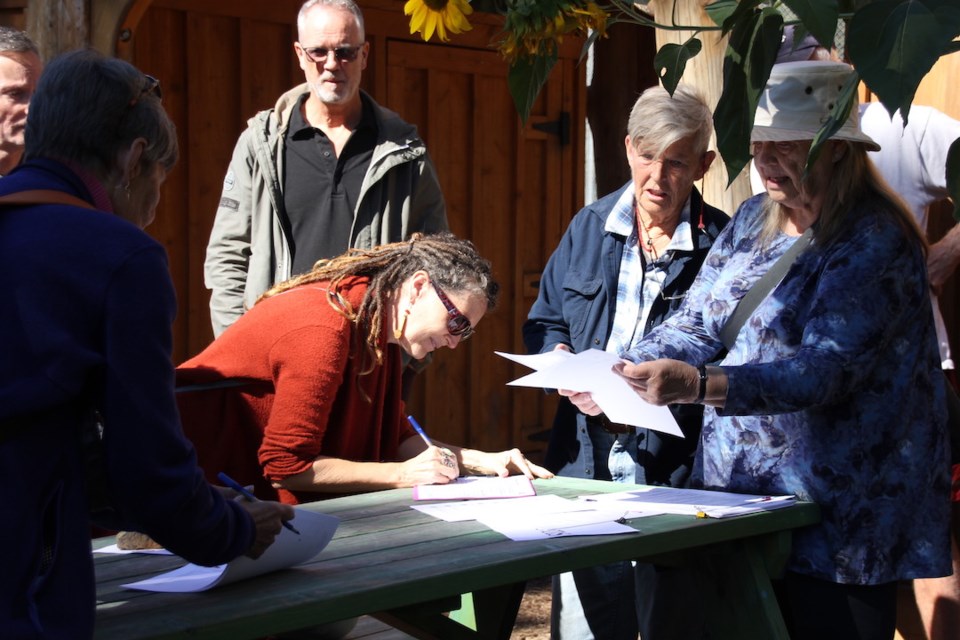Proponents of the Sue Big Oil movement got a “wait and see” message from Sunshine Coast Regional District directors at a Nov. 16 electoral services committee meeting.
Committee chair and Area E director Donna McMahon indicated she had read three legal opinions on regional district’s participation in the proposed class action lawsuit. Those, she said ranged from “yes, to no, to maybe." While support was voiced by a number of directors for seeing major fossil fuel companies be held responsible for costs of damage to local government infrastructure caused by climate change no recommendation to join the action was made.
Local movement representatives Dawn Allen referred the question on participation to Andrew Gage from West Coast Environmental Law, who joined her as a delegate before the committee. He stated that he had recently presented the call to participate in the action to B.C.’s Capital Regional District (CRD). At its committee level, that jurisdiction expressed similar considerations and has requested its staff to investigate the matter and report back before they consider signing on, he stated.
SCRD directors asked and their chief administrative officer, Dean McKinley, agreed that local staff could reach out to counterparts in the CRD and request access to the details on regional district participation that result from their investigations. After considering that, SCRD staff would report back and make recommendations to the committee.
"The CRD has a bigger team and more horsepower than we do,” McKinley stated. He also explained that he had done initial inquiries with other BC regional districts and the province, seeking advice on the eligibility of regional governments to be part of the class action suit, but had received no definitive direction.
If the SCRD board should opt to join the Sue Big Oil movement, Allen explained it would be asked to set aside $1 per resident to help fund the court action. She noted that as Gibsons has already confirmed its participation and the District of Sechelt will be approached on a separate basis, SCRD funding would be based on the rural populations and would be in the range of $15,000. She voiced the opinion that participating was not only an opportunity for the SCRD but a “responsibility” to seek coverage for infrastructure repair and reinforcement costs from the sector that created the climate change-related issues and caused the damages.
Next steps
None of those funds would be spent until local governments representing what she called a “critical mass” of B.C. residents sign on to the movement. The action also requires a judge to certify that it can proceed.
Allen stated support for the movement is strong on the Coast. She reported over 1700 residents have signed a locally based petition, and about 45 letters of support for the movement have been sent to the SCRD board. Province-wide, she stated about 69 per cent of the population has indicated support and that percentage is higher, at 74 per cent, for Coast residents.



